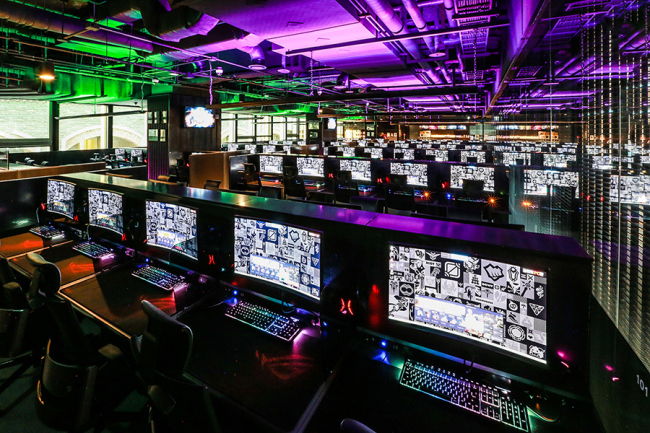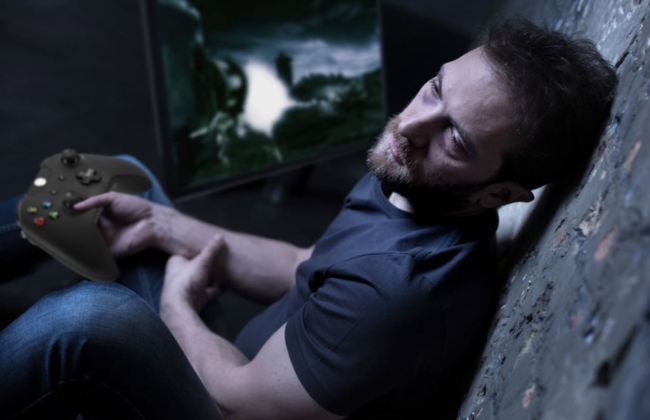[Feature] ‘Game addiction is real, but ...’
Researchers underline need to recognize gaming disorder, explain why game companies shouldn’t worry
By Lim Jeong-yeoPublished : March 4, 2019 - 14:53
In early January, news spilled that Korean game company Nexon was up for sale, with China’s Tencent speculated as a potential buyer.
Industrywide discussion ensued, with critics lambasting the government for eschewing support for the promising market, to the extent that even the biggest game company was setting to withdraw from management.
Nexon is Korea’s biggest game company. Reports said its founder and largest shareholder, Nexon parent company NXC CEO Kim Jung-ju, was “tired of regulatory clampdowns” and wanted to pursue a different line of business, according to reports.
It’s a common complaint in a country where concerns over game addiction have sparked draconian regulations in response.
Industrywide discussion ensued, with critics lambasting the government for eschewing support for the promising market, to the extent that even the biggest game company was setting to withdraw from management.
Nexon is Korea’s biggest game company. Reports said its founder and largest shareholder, Nexon parent company NXC CEO Kim Jung-ju, was “tired of regulatory clampdowns” and wanted to pursue a different line of business, according to reports.
It’s a common complaint in a country where concerns over game addiction have sparked draconian regulations in response.

Legal restraints here include shutting off players from games from midnight to 6 a.m., and limiting in-game spending to 500,000 won ($440) a month for adults and 70,000 won a month for minors.
While NXC denied the decision to sell the business had anything to do with regulations, others in the industry took it as an opportunity to complain that they are socially condemned for a business that is thriving and contributing to the economy.
The top three performing Korean game companies -- Nexon, Netmarble and NCSoft -- recorded a combined yearly revenue of over 5 trillion won last year.
Investment bank Goldman Sachs estimates the size of the global esports industry will jump from $869 million in 2018 to $2.96 billion in 2022, growing 30 to 40 percent each year.
Gaming addiction is real, just like alcohol addiction, says Joe Keun-ho, director for the Department of Mental Health Services at the National Center for Mental Health in Korea. But that doesn’t mean that gamers are all vulnerable.
“You drink, don’t you?” Joe asks, “But that doesn’t make you an alcoholic. The same applies to games.”

Having treated patients who exhibited symptoms of addiction to gaming, Joe is a solid proponent of the World Health Organization’s 11th revision of the International Classification of Diseases, which posits excessive gaming as a mental health disorder. The updated ICD-11 was introduced in June last year. It is scheduled to be presented to WHO member states at the annual World Health Assembly in May for adoption in January 2022. At this advanced stage, it’s rare for a WHO revision to be denied by member countries.
“Acknowledging that dysfunctional people exist is the first step. Then the psychology experts can join heads to draw consensus on how best to treat this group of people,” Joe said.
Joe emphasized that gaming itself is not the issue. There are people who are more vulnerable to the happiness induced by dopamine secretion. Only a small portion of people who play games become excessively addicted to gaming.
As a person who likes to play games himself, Joe says game companies should not think of ICD-11 as the end of the business. Rather, adoption of the classification will help create a healthier environment for people to enjoy gaming.
An online appeal posted on Korea’s biggest internet search portal Naver reads, “My daughter is a game addict. She is 40 years old. We don’t know what she plays, but she is squandering her 3 million won monthly income on games and we believe she has debt, too. We helped her out once, but now she is touching family money.”
With ICD-11, more accurate use of therapeutic drugs can be researched and prescribed to people afflicted with gaming disorder.
Lee Hae-kook, a professor from the Catholic University of Korea College of Medicine who participated in the WHO’s task force as a representative from South Korea, believes only 1 percent of people who play games fall victim to gaming disorder.
“However, every addiction has the stigma of patients being (too) ‘weak’ to control their own behavioral pattern,” Lee said, “Which delays public recognition of addiction as a medical condition.”
Alcohol overuse disorder was included in the psychiatric consultation category in the 1960s, but was only accepted for medical insurance in the 1980s.
“Also, just like tobacco and alcohol, ‘addiction’ occurs when people seek pleasure. (These industries), of course, have companies that produce these things,” Lee said. “Inevitably there is always a conflict of interest and controversy.”
Experts, on the other hand, advise focusing on the benefits that can come from gaming and campaigns against stereotyping the whole industry based on the minority.
Seoul National University’s Institute for Cognitive Science, for one, researches the positive influences of gaming on cognitive development, including strategic thinking and space perception.
The institute advises adolescents to play role-playing games that require collaboration with others. For adults, first-person shooting games are recommended to relieve stress. And for older people whose cerebral blood flow is weaker, augmented reality games can encourage them to move around and exercise.
The US Food and Drug Administration is approving games that can be used to treat autism and dementia. The SNUICS envisions a future where “game therapist” would become a viable occupation.
By Lim Jeong-yeo (kaylalim@heraldcorp.com)





![[From the Scene] Monks, Buddhists hail return of remains of Buddhas](http://res.heraldm.com/phpwas/restmb_idxmake.php?idx=644&simg=/content/image/2024/04/19/20240419050617_0.jpg&u=20240419175937)





![[Graphic News] French bulldog most popular breed in US, Maltese most popular in Korea](http://res.heraldm.com/phpwas/restmb_idxmake.php?idx=644&simg=/content/image/2024/04/18/20240418050864_0.gif&u=)


![[From the Scene] Monks, Buddhists hail return of remains of Buddhas](http://res.heraldm.com/phpwas/restmb_idxmake.php?idx=652&simg=/content/image/2024/04/19/20240419050617_0.jpg&u=20240419175937)

![[KH Explains] Hyundai's full hybrid edge to pay off amid slow transition to pure EVs](http://res.heraldm.com/phpwas/restmb_idxmake.php?idx=652&simg=/content/image/2024/04/18/20240418050645_0.jpg&u=20240419100350)

![[Today’s K-pop] Illit drops debut single remix](http://res.heraldm.com/phpwas/restmb_idxmake.php?idx=642&simg=/content/image/2024/04/19/20240419050612_0.jpg&u=)